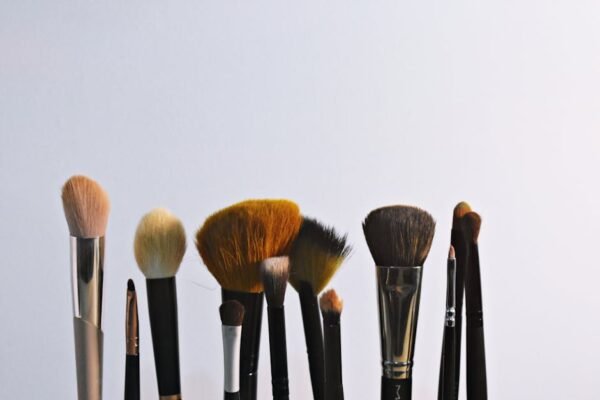
The Invisible Culprit: Humidity’s Role in Skin Health
At first glance, the connection between room humidity and skin health might seem elusive. Yet, the air around us plays a pivotal role in our skin’s wellbeing. Too much moisture in the air can turn our homes into breeding grounds for dust mites and mold, leading to skin irritations and more serious health issues. Conversely, air that’s too dry can strip the skin of its natural oils, resulting in dryness, itching, and flakiness.
It’s a delicate balance, one that often requires the assistance of a dehumidifier to maintain. But when is the right time to use one? Understanding the signs that your skin’s health is at the mercy of room humidity is the first step towards creating a healthier living environment. This article aims to shed light on that connection, offering insights and solutions to preserve your skin’s health against the invisible challenge posed by improper humidity levels.

Understanding the Science Behind Dehumidifiers and Skin Moisture Balance
Dehumidifiers play a pivotal role in maintaining the optimal humidity levels in our homes, which is crucial for our comfort and health. The balance between too much and too little humidity can deeply affect our skin’s moisture levels. In environments with high humidity, our skin tends to feel more moist due to the increased presence of water in the air. This might seem beneficial, but excessive moisture can lead to a proliferation of dust mites, mold, and fungi, all of which could result in skin irritations or allergies.
Conversely, in a low-humidity environment, the air can draw moisture away from the skin, leading to dryness, flaking, and even exacerbating conditions like eczema. Using a dehumidifier to regulate the air’s moisture content can help maintain the skin’s hydration level, promoting a healthier skin barrier function. It’s important to find a balance that mimics the body’s natural environment, usually between 40% to 60% relative humidity, to support skin health.

Eco-Friendly and Energy-Efficient Dehumidifiers
In the pursuit of sustainable skin care, selecting the right gadgets for our homes is paramount. Among these, eco-friendly and energy-efficient dehumidifiers stand out as essential tools. These dehumidifiers not only help in maintaining the optimal humidity level for healthy skin but also play a significant role in reducing energy consumption and environmental impact. By using advanced technology, these devices can efficiently remove excess moisture from the air, preventing the proliferation of mold and dust mites, which are common allergens that can harm skin health.
Moreover, the choice of an eco-friendly dehumidifier is a step towards sustainable living. It’s not just about reducing electricity bills; it’s about making a conscious choice to lessen our carbon footprint. With features like automatic shut-off, low energy consumption, and the use of refrigerants that have minimal impact on global warming, these dehumidifiers embody the principles of sustainability and care for the environment. As more consumers prioritize eco-friendly products, the demand for energy-efficient dehumidifiers in the realm of skin care and beyond continues to grow, highlighting their importance in our daily lives and the health of our planet.
Embark on a fascinating journey to unveil the crucial role of dehumidifiers in achieving that dewy, flawless skin every skincare aficionado dreams of. In this comprehensive guide, we delve into the unseen benefits that a dehumidifier brings into your skincare regimen. From combating pesky skin issues to ensuring your topical products work their magic effectively, the importance of maintaining an ideal humidity level in your sanctuary cannot be overstated.
Why Dehumidifiers are a Skincare Must-Have:
- Prevention of Mold Growth: Mold thrives in damp environments and can cause a host of skin irritations. A dehumidifier keeps the humidity in check, safeguarding your skin from unwelcome guests.
- Optimal Product Efficacy: High humidity can affect the stability and effectiveness of your skincare products. By maintaining a balanced environment, your serums and creams perform exactly as intended.
- Reduction of Dust Mite Populations: These tiny critters are not just harmful to your respiratory health but can also aggravate skin conditions. A dehumidifier helps in managing dust mite levels.
- Enhanced Comfort and Skin Health: Too much moisture can lead to a sticky feeling, encouraging the production of excess oil. A dehumidifier ensures your skin feels comfortable and balanced.
- Better Sleep Quality: Good sleep is crucial for skin regeneration, and a dehumidified room provides a more conducive sleeping environment.
- Prevents Overly Dry Skin: Interestingly, using a dehumidifier can also prevent your indoor air from becoming too dry, which is especially beneficial during colder months when heaters can strip the air of moisture.
- Supports Hydration Levels: By eliminating excessive humidity, your skin’s natural hydration levels are better maintained, allowing it to look and feel supple and nourished.
- Allergy Reduction: A dehumidifier can reduce allergens in the air, which is a win for your respiratory system and skin, as allergies can often manifest as skin irritations or flare-ups.

Optimizing Your Dehumidifier Settings for Skin Health
Dealing with eczema and sensitive skin conditions can be an ongoing battle, with environmental factors playing a significant role in outbreaks and discomfort. One often overlooked tool in managing these conditions is the proper use of a dehumidifier. Keeping indoor humidity levels in check can significantly reduce the irritants that exacerbate skin issues. Typically, maintaining an indoor humidity level between 40% to 60% is recommended for optimal comfort and health.
Adjusting your dehumidifier settings according to the season is crucial; higher settings may be needed in humid summer months, while lower settings can benefit the drier winter air. Importantly, regular maintenance of your dehumidifier, such as cleaning filters, is vital to its effectiveness and the prevention of mold growth, a common irritant for those with sensitive skin conditions. Incorporating these strategies can lead to a noticeable improvement in living conditions for sufferers, promoting healthier skin and a better quality of life.
Addressing Myths About Dehumidifiers and Skin Care: What Experts Say
Myth 1: Dehumidifiers Dry Out Your Skin
Many believe that using a dehumidifier, especially in dry climates, can lead to drier skin. However, experts suggest that dehumidifiers do not directly cause skin dryness. Dehumidifiers remove excess moisture from the air, which can actually help prevent the growth of mold and dust mites, known triggers for skin irritation and allergies. Proper hydration and skincare are more influential factors in maintaining skin moisture.
Myth 2: You Don’t Need to Use Moisturizer if You Have a Dehumidifier
This is a common misconception. Regardless of the humidity levels in your home, moisturizing should remain an essential part of your skincare routine. Dehumidifiers help in maintaining a balanced environment, but they do not replace the nutrients and hydration that moisturizers provide to your skin.
Myth 3: All Dehumidifiers Are the Same
When it comes to skin care, not all dehumidifiers offer the same benefits. It’s important to choose a dehumidifier that suits your specific needs. For example, individuals with sensitive skin might benefit from a dehumidifier with a built-in air purifier to remove potential irritants from the air.
Understanding the capabilities and limitations of dehumidifiers can help you use them more effectively as part of your overall skin care strategy. Consulting with a dermatologist can provide personalized advice based on your skin type and environment.





